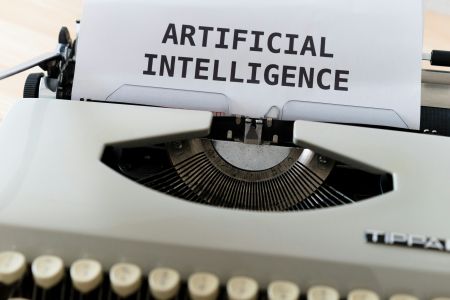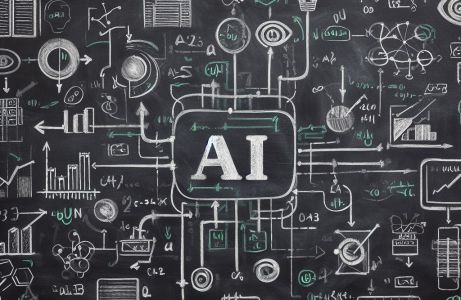- By David Martin, Ether Solutions - technology-focused consultancy, Buckinghamshire Business First Stakeholder
- 28 November, 2023
Share by email
Article by David Martin, Ether Solutions - technology-focused consultancy, Buckinghamshire Business First Stakeholder.
Everybody has a personal phone and its use in the office is usually separate from any work activity. Does AI change that position? What software do staff use?
BYOD (Bring your Own Device)
BYOD (Bring your Own Device) arose with personal tablets and personal laptops that get used by individuals to perform work activities. In many trades this is like a personal tool box and is often expected from freelance staff / contractors.
HR polices and IT processes are generally well established in this area. Such policies will have been tested as the Working From Home (WFH) dynamics have been implemented.
What changes with AI?
The potential offered by Generative AI has led to a lot of experimenting with the tools to deliver business value. Many staff will view the use of such tools as an aid to performing their work tasks.
The term 'Citizen Developer' has been common in the automation sector for a while, but I believe most of the automations which have been created are business-specific rather than generic.
Of course, it is not just AI tools and automations but many other apps and software tools that are available on a 'software-as-a-service' (SaaS) basis.
Bring Your Own Software (BYOS)
The potential for staff to “Bring Your Own Software” (BYOS) raises many challenges. Physical security checks will not work, you will not find software in the bag.
If an individual pays for a software subscription and accesses the functionality provided from a business device to perform their work, what are the issues?
- Shows the individual as resourceful, willing to invest to improve themselves.
- Might be harder for another member of the team to do the tasks unless they also used the software subscription.
- Company data might be copied outside of the company’s IT infrastructure with corresponding GDPR, copyright and intellectual property risks.
- Does the use get detected by business monitoring software?
- When staff are WFH, would a business even know if an employee is using any such software subscriptions?
- Out of sight of any supervisor, would the activity tracking software pick up its use?
In many respects, the issues are similar to the BYOD challenge.
Who is doing the work?
One challenging scenario is where a Software Robot is used by an individual to perform the work they would otherwise manually undertake on the business applications. The work is actually being done in exactly the same way, it is just the employee is not typing and clicking, etc.
With the software robot working away, the employee could be cooking, golfing or sleeping while being paid by the company.
Another challenging scenario is emerging with Generative AI concerning “prompts”. The technology is changing but it is becoming clear by the number of “cheat sheets” being provided in social media posts that the formulation of “prompt scripts” can be a major differentiator on the quality of information created from an AI dialogue. How much of this “scripting” becomes “personal” knowledge and how much of it is a “company asset” might be a question for the courts.
When Generative AI has been used, the outcome might be just what the employee requires for the task or it might be 80%-90% okay, so that with a little extra work the required deliverable is created. Does a business need to care or worry about how the deliverable was produced if the result is the appropriate quality?
If the employee was looking something up in a book and then paraphrasing it to create the deliverable, would that be okay?
Broader issues
As prompts are “English language”, it will be hard to claim intellectual property or copyright, as many individuals could easily independently write similar scripts. The potential for staff to take scripts or recreate scripts when they move employment is likely to become commonplace.
Is the management of staff about how the work time is spent or the deliverables produced during the work time?
Embracing the opportunities
Every business can benefit from curious people who will look for innovation from the available technologies. The ideas and opportunities discovered by these explorer-minded staff will need to be filtered to meet the usual business balances of risk, resilience, costs, etc.
The rapid evolution of AI tools in the marketplace suggests that many will fail from a commercial perspective and much of the technology will get absorbed into the existing large technology providers. This will probably mean that although experimenting can be rewarding for individuals, most of the benefits from AI technology for business will be delivered through the existing suppliers.
The saying that “Success is 1% inspiration and 99% perspiration” is likely to remain true, although, of course, it could be AI and robot automation rather than human effort which deliver the success.
Wondering where to start with AI? Get practical tips and advice on the tools available for business.
Join David Martin for a quick-fire immersive breakout session on the topic of Artificial Intelligence at the Buckinghamshire Business Expo on 7th December in High Wycombe.
David and his team of highly-skilled and experienced professionals at Ether Solutions will also be one of the exhibitors there on the day, so make sure you've booked a free ticket to attend the Expo! (You don't need a ticket to attend the breakout session - you can book that for free here.
Article by David Martin, Ether Solutions - technology-focused consultancy, Buckinghamshire Business First Stakeholder.






